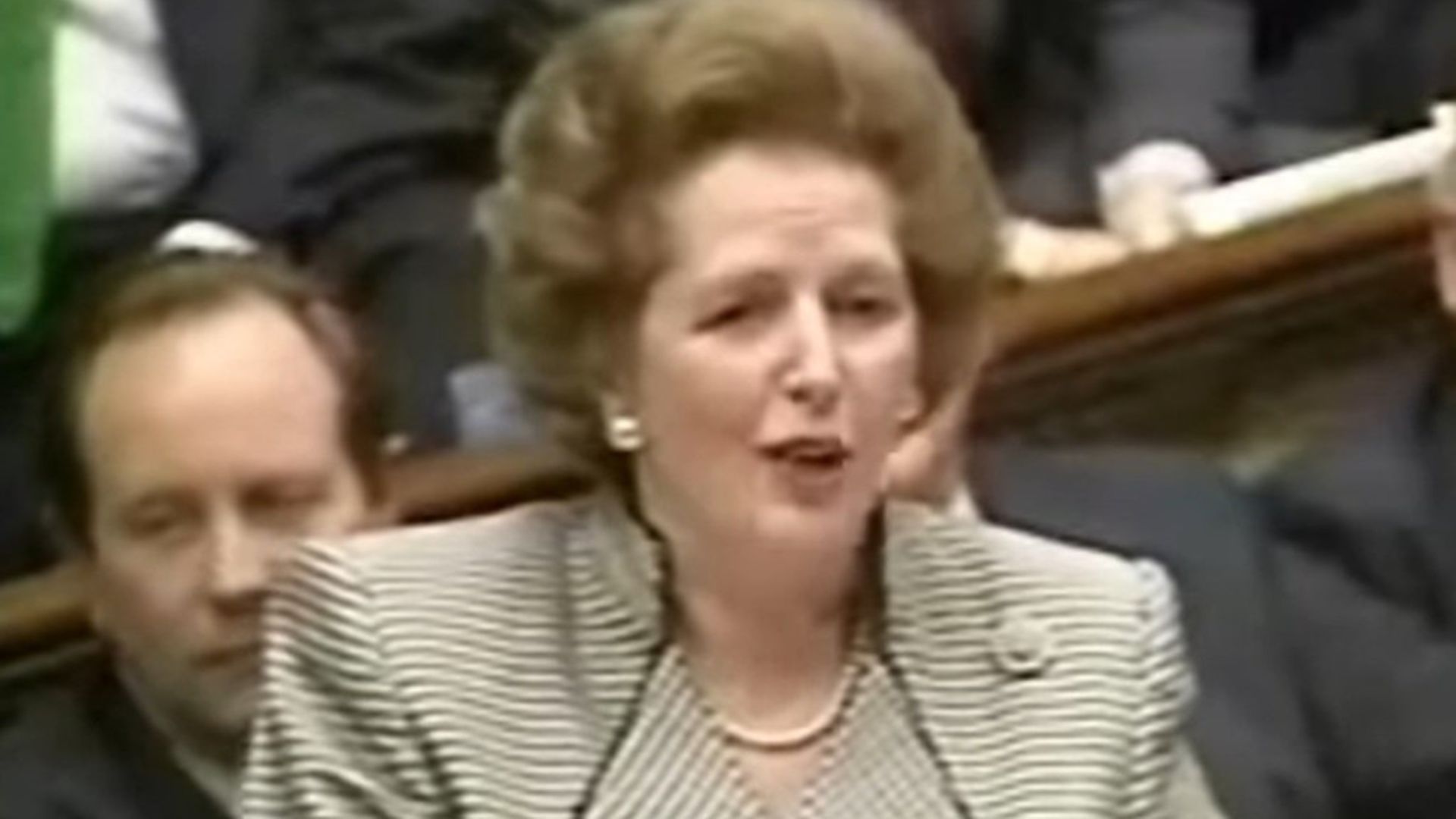
With no PMQs to review for a while, we look back on some classic encounters. This week it’s the first to be televised
November 28, 1989: a watershed in the history of prime minister’s questions. Because, after years of lobbying from the BBC and equally intense counter-lobbying from MPs keen to protect the green benches’ constitutional role as a place for old white men to have a snooze, it was the first to let the television cameras in.
The Conservative MP Brian Batsford had called for it in the 1970s, saying it would – in a line which could have come straight from a Lisa Nandy leadership speech – ‘bridge the gulf which has widened so much between Parliament and the people’. But traditionalism prevailed and it was only following a heated debate in 1988 – in which Frank Dobson, a future New Labour cabinet minister, got a mention of breakfast TV irritant Roland Rat into Hansard – that it was agreed to trial televising proceedings.
In a limited way. The November PMQs was the first to be televised, but not live – that didn’t happen until the following year. And broadcasters weren’t allowed to use so-called ‘reaction’ shots, meaning they were limited to a series of static close-ups and the occasional wide shot of the whole chamber.
Watching back now, it’s not the only way in which this could be 100 years ago. Firstly, Margaret Thatcher was the only woman. No other woman asked a question, and the limited shots meant no other woman was seen. Secondly, when she begins the (15-minute) session by announcing she was that evening meeting South Korean president Roh Tae-Woo another MP can quite clearly be heard saying ‘they eat dogs’. I’m not making this up – find the video on YouTube. Not even Peter Bone would say that now. Probably.
But much is familiar. Contrary to the popular myth that parliamentary stage-management was a New Labour invention, patsy MPs being handed obsequious questions were just as much in evidence. In this case Tim Yeo showed how he later became a cabinet member by asking if Thatcher agreed that a 45% increase in health spending since 1979 ‘makes absolutely clear which party in the House is genuinely concerned about improving the National Health Service’. Thatcher produced ‘today’s newspaper’ (as if there were just one) featuring an article by a doctor ‘who had not been of our political persuasion’ backing the government’s health reforms.
Despite his windbag reputation, leader of the opposition Neil Kinnock’s questioning was quick, short and focused, a contrast to his most recent successor’s meandering disquisitions. He went on a National Audit Office report saying that the government had sold off Rover for at least £60m less than it was worth and called for ‘a public apology for this gross incompetence’. Governments owning carmakers! All seems rather quaint, until you think that this time next year it will probably own the bulk of what remains post-pandemic.
Thatcher responded by saying it had not made a profit since 1976, but Kinnock, who had three questions, drilled her on the report until the prime minister countered that ‘if it was such a good bargain, why did not the TUC and the unions try to buy it first’. Which doesn’t make a great deal of sense.
If nothing else, do watch this for the sight of the original Mark Francois: Michael Cartiss, a portly, claret-faced Tory backbencher with the voice of a foghorn who bellowed: ‘Will my right honourable friend acknowledge that, although I was listed as one of the Tory rebels by the Radio 4 programme and have the honour to represent the constituency once represented by the distinguished member who was the father of my honourable friend the member for Clwyd North-West, I, my constituents and the British people demand that she remains?’. No, I have no idea what he was talking either, but he was likely still more coherent than Francois’ forthcoming memoirs.
Bob Cryer, the first MP to speak in the Commons on TV the previous week and father of the current MP for Leyton and Wanstead, asked about the impending water privatisation. ‘Is she aware that if the right honourable member for Henley [Michael Heseltine] had the guts to stand against her she would be swept from office and dumped with the garbage of her policies?,’ he added, part-presciently. ‘Where is he?,’ yelled Labour MPs about Hezza.
Finally, Liberal Democrat Jim Wallace rose to call on Thatcher to ‘give the Scottish people greater opportunities to govern themselves’.
‘I believe that the Scottish people are best served by the present arrangements — the United Kingdom in the European Community and the continuance of the European Community as an organisation with maximum cooperation between sovereign nations,’ replied Thatcher. As I say, different times. Thatcher would later be the guiding spirit of the Brexiteers who would take over the Conservative Party. Wallace was sworn in as deputy first minister of a devolved Scottish government less than 10 years later.










